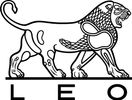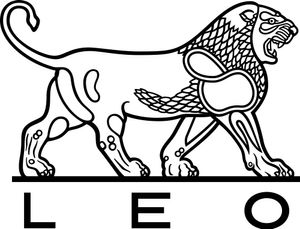Adtralza® (tralokinumab) achieves primary and secondary endpoints in Phase 3 trial of adolescents with moderate-to-severe atopic dermatitis
- Sixteen-week results from the Phase 3 ECZTRA 6 trial in adolescents showed tralokinumab 150 mg and 300 mg significantly improved measures of efficacy compared to placebo1
- Tralokinumab was generally well-tolerated with an overall frequency and severity of adverse events comparable with placebo, consistent with that observed in adults in Phase 3 trials1
BALLERUP, Denmark, October 22, 2021 – LEO Pharma A/S, a global leader in medical dermatology, today announced 16-week results of a 52-week monotherapy trial showing tralokinumab significantly improved primary and secondary measurements of efficacy among adolescents (aged 12 to 17) with moderate-to-severe atopic dermatitis.1 The week 16 results from the Phase 3 ECZTRA 6 trial were shared during the 2021 Fall Clinical Dermatology Conference held virtually and with a hybrid option in Las Vegas.
Tralokinumab is a high-affinity, human monoclonal antibody that specifically binds to and inhibits IL-13, a key driver of atopic dermatitis signs and symptoms.2,3It has been approved as Adtralza for the treatment of adults with moderate to severe atopic dermatitis by the European Commission and by the MHRA in June 2021 and by Health Canada in October 2021.
“After 16 weeks, adolescents who received either dose of tralokinumab, without rescue therapy, showed significantly greater improvement in atopic dermatitis signs and symptoms and quality of life compared to those receiving placebo,” said Amy Paller, MD, Chair, Department of Dermatology, Feinberg School of Medicine, Northwestern University in Chicago, Illinois, and the international coordinating investigator for ECZTRA 6. “These findings are encouraging, as moderate-to-severe atopic dermatitis can have major physical and psychosocial impacts on adolescents who have limited options for long-term treatment.”
The 16-week initial treatment period of the ECZTRA 6 trial (NCT03526861) assessed the efficacy and safety of tralokinumab 150 mg (n=98) or 300 mg (n=97) every two weeks (Q2W) compared to placebo (n=94) in adolescents.1 At week 16,tralokinumab met its primary and secondary endpoints,showing that significantly more patients treated with tralokinumab achieved a clinical response, compared to placebo, defined as achieving an IGA 0/1 and/or an EASI 751:
- 21.4% (p<0.001) of the tralokinumab 150 mg group and 17.5% (p=0.002) of the tralokinumab 300 mg group achieved clear or almost-clear skin compared to 4.3% with placebo as measured by IGA.1
- 28.6% (p<0.001) of the tralokinumab 150 mg group and 27.8% (p=0.001) of the tralokinumab 300 mg group achieved 75% or greater disease improvement from baseline compared to 6.4% with placebo as measured by EASI.1
Secondary endpoints were all met, addressing extent and severity of atopic dermatitis (SCORAD), achieving at least a 4-point improvement in adolescent weekly average worst daily pruritus NRS score, and health-related quality of life related to dermatological conditions (CDLQI).1
The safety and tolerability of tralokinumab compared with placebo, when used to treat adolescents with moderate-to-severe atopic dermatitis, was also investigated. The overall frequency and severity of adverse events (AEs) in the trial were comparable across the treatment groups over 16 weeks (67% for tralokinumab 150 mg, 65% for tralokinumab 300 mg, and 62% for placebo).1
The percentage of AEs, serious AEs, AEs leading to discontinuation and conjunctivitis events were similar between both doses of tralokinumab (150mg and 300mg) and placebo treatment groups in the initial treatment period of 16 weeks. Most AEs in the three treatment groups were mild or moderate in severity and subjects recovered from most.1 The safety results were consistent with the Phase 3 adult tralokinumab trials.1
"We are encouraged by these results that advance our understanding of tralokinumab in adolescents, many of whom often struggle with the negative emotional and physical impacts of atopic dermatitis,” said Jörg Möller, MD, Executive Vice President, Global Research and Development, LEO Pharma. “This is an important milestone for the overall ECZTRA clinical trial program as we expand studies to include younger patients."
To view the full presentation, please visit https://www.leopharmaposters.net/login?returnUrl=/fall-clinical-dermatology-2021/postercollection211008
About the ECZTRA 6 Trial
ECZTRA 6 (ECZema TRAlokinumab trial No. 6, NCT03526861) is a randomized, double-blind, placebo-controlled, parallel-group, multinational 52-week trial, including a total of 301 patients (aged 12 to 17), with 289 (195 tralokinumab patients and 94 placebo patients) in the full analysis set, evaluating the efficacy and safety of tralokinumab (150 mg or 300 mg) as a monotherapy compared to placebo in adolescents with moderate-to-severe atopic dermatitis who were candidates for systemic therapy.1,4
Following a washout period, patients were randomized to subcutaneous tralokinumab 150 mg or 300 mg Q2W, or placebo for an initial 16 weeks.Tralokinumab dosing started with a 300 mg or 600 mg loading dose on day 0 for those receiving tralokinumab 150 mg or 300 mg Q2W, respectively.1
At week 16, patients who responded to tralokinumab with an IGA score of 0/1 and/or EASI change of at least 75% from baseline, without use of rescue treatment, were re-randomized to tralokinumab Q2W or Q4W for an additional 36 weeks.Patients not achieving primary endpoints at week 16, those receiving rescue treatment from week 2 to week 16, and those meeting other specific criteria were transferred to open-label treatment of tralokinumab 300 mg Q2W plus optional mild-to-moderate strength topical corticosteroids.1
About atopic dermatitis
Atopic dermatitis is a chronic, inflammatory, skin disease characterized by intense itch and eczematous lesions.5 Atopic dermatitis is the result of skin barrier dysfunction and immune dysregulation, leading to chronic inflammation.6 Type 2 cytokines, including IL-13, play a central role in the key aspects of atopic dermatitis pathophysiology.2
References
- Paller A. Efficacy and safety of tralokinumab in adolescents with moderate-to-severe atopic dermatitis: results of the phase 3 ECZTRA 6 trial. Fall Clinical. Oct. 21-24, 2021. Poster Presentation.
- Bieber T. Interleukin-13: targeting an underestimated cytokine in atopic dermatitis. Allergy. 2020; 75:54-62.
- Popovic B, et al. Structural characterisation reveals mechanism of IL-13-neutralising monoclonal antibody tralokinumab as inhibition of binding to IL-13Rα1 and IL-13Rα2. J Mol Biol. 2017; 429:208–19.
- ClinicalTrials.gov. Tralokinumab Monotherapy for Adolescent Subjects With Moderate to Severe Atopic Dermatitis - ECZTRA 6 (ECZema TRAlokinumab Trial no. 6). https://clinicaltrials.gov/ct2/show/NCT03526861.
- Weidinger S, et al. Atopic dermatitis. Lancet. 2016; 387:1109-1122.
- Boguniewicz M, et al. Atopic dermatitis: a disease of altered skin barrier and immune dysregulation. Immunol Rev. 2011;242(1):233-46.
Contacts
Henrik Heskjaer
Global External Communications
+45 3140 6180
hdtdk@leo-pharma.com
About LEO Pharma
About LEO Pharma
LEO Pharma helps people achieve healthy skin. The company is a leader in medical dermatology with a robust R&D pipeline, a wide range of therapies and a pioneering spirit. Founded in 1908 and majority owned by the LEO Foundation, LEO Pharma has devoted decades of research and development to advance the science of dermatology, setting new standards of care for people with skin conditions. LEO Pharma is headquartered in Denmark with a global team of 6,000 people, serving 93 million patients in 130 countries. In 2020, the company generated net sales of DKK 10,133 million. For more information, please visit www.LEO-Pharma.com.
Subscribe to releases from LEO Pharma
Subscribe to all the latest releases from LEO Pharma by registering your e-mail address below. You can unsubscribe at any time.
Latest releases from LEO Pharma
DEBRA Research and LEO Pharma Announce Strategic Partnership to Advance Treatments for Rare Skin Diseases5.2.2025 09:00:00 CET | Pressemeddelelse
Partners form non-exclusive collaboration to expand research efforts and develop new treatments for Epidermolysis Bullosa (EB). The partnership leverages DEBRA Research’s focus on patient care and pharma experience and LEO Pharma’s extensive medical dermatology experience. Munich, Germany, and Ballerup, Denmark, 5 February 2025 – DEBRA Research GmbH, a non-profit organization dedicated to advancing research, advocacy, and support for those affected by Epidermolysis Bullosa (EB) and LEO Pharma, a global leader in medical dermatology, today announced a non-exclusive strategic partnership. This collaboration aims to enhance scouting capabilities and provide additional capacity to accelerate the development of life-changing therapies for EB. The partners are committed to driving transformative progress for EB patients and their families, and to deliver innovative medicines for this serious skin disease with no approved treatment options. “We are pleased to announce our non-exclusive partne
LEO Pharma Achieves Positive DELTA TEEN Trial Results with Anzupgo® (delgocitinib) Cream in Adolescents with Moderate to Severe Chronic Hand Eczema (CHE)4.2.2025 14:00:00 CET | Pressemeddelelse
The phase 3 clinical trial (DELTA TEEN) with Anzupgo® in adolescents, aged 12-17, with moderate to severe Chronic Hand Eczema (CHE) for whom topical corticosteroids are inadequate or inappropriate, achieved primary and all key secondary endpoints compared to cream vehicle.(1) CHE can significantly affect the quality of life for adolescent patients.(2) There are currently no approved treatment options specifically indicated for moderate to severe CHE in the adolescent patient population.
LEO Pharma Announces Changes to Executive Leadership29.1.2025 14:00:00 CET | Pressemeddelelse
null
GILEAD AND LEO PHARMA ENTER INTO STRATEGIC PARTNERSHIP TO ACCELERATE DEVELOPMENT OF ORAL STAT6 PROGRAM WITH POTENTIAL IN MULTIPLE INFLAMMATORY DISEASES11.1.2025 17:12:38 CET | Pressemeddelelse
null
LEO Pharma’s Anzupgo® (delgocitinib) Cream Achieves Marketing Approval in Switzerland14.11.2024 10:31:50 CET | Pressemeddelelse
The Swiss Agency for Therapeutic Products, Swissmedic, has approved Anzupgo®, making it the first topical pan-Janus kinase (JAK) inhibitor specifically indicated for the treatment of moderate to severe Chronic Hand Eczema (CHE) in adults who have had an inadequate response to topical corticosteroids, or for whom potent to very potent topical corticosteroids are not advisable.(1) The approval will bring a new treatment option to approximately 4.7% of adults in Switzerland living with CHE, a condition with a high unmet need for which no specifically approved topical treatment was previously available.(2,3) In addition to the results of the DELTA 1,2 and 3 trials, the marketing approval is supported by the head-to-head DELTA FORCE trial of Anzupgo against oral alitretinoin capsules, the only other existing specifically approved treatment for severe CHE.(4-7)
In our pressroom you can read all our latest releases, find our press contacts, images, documents and other relevant information about us.
Visit our pressroom
